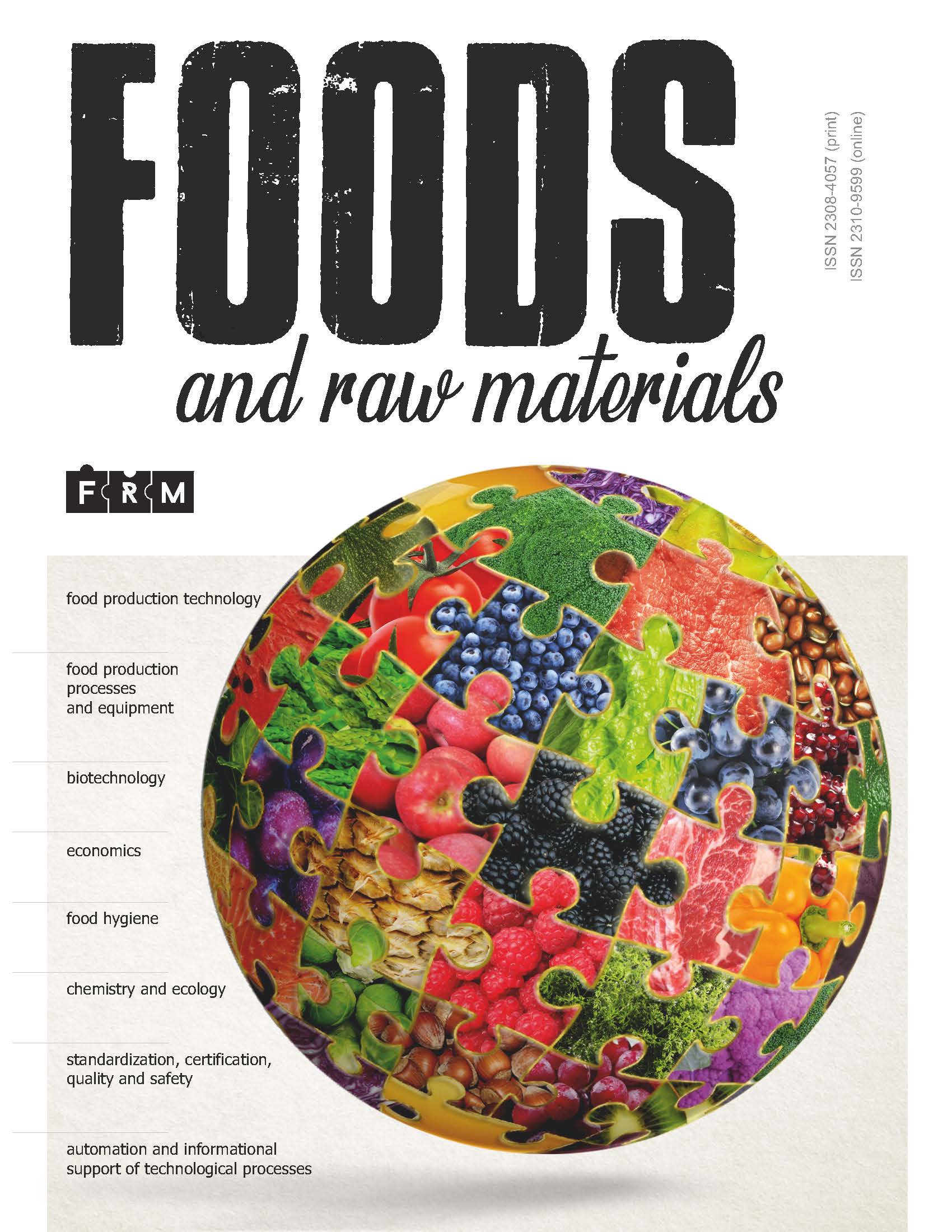Recently the Russian dairy industry has undergone large changes, predetermined by the increasing use of nondairy raw materials (vegetable fats and proteins, natural fruit and vegetable fillers, etc.). This is associated with the increased demand for new products that not only have traditional nutritive properties but also make up for the deficit of certain nutrients in the ration. Practically all types of dairy products can be combined with various vegetable components. This article attempts to solve the problem of creating healthy foods by considering natural ingredients and technological specifics of functional food production.
scientific developments, functional food products, biologically active substances, milk, cheese products, nutritive and biological value, essential nutrients, dietary fibers, galacto-oligosaccharides, probiotics, dairy products
INTRODUCTION
At the Kemerovo Institute of Food Science and Technology (Russia), a scientific school has formed that solves important scientific and technical problems of the development of the dairy industry. The founder of this scientific school is Lev Aleksandrovich Ostroumov, who has dedicated more than 50 years of his life to the development of the dairy industry. He is known in Russia and abroad as a scientist who deeply understands trends in the global practices of dairy engineering and technology.
Ostroumov's scientific school is universally recognized, and his scientific works in the sphere of milk processing have a great impact on the forma-tion and development of the industry's scientific potential. Ostroumov was awarded the Honored Worker of Science and Technology for excellence in scientific research.
Many doctors of sciences and professors at the Kemerovo Institute of Food Science and Technology have passed through the school of Prof. Ostroumov. Among his disciples are Anatolii M. Popov, Irina A. Smirnova, Lyubov' V. Tereshchuk, Aleksandr Yu. Prosekov, Aleksei M. Osintsev, Lyudmila M. Zakharova, Irina V. Buyanova, and Svetlana M. Lupinskaya.
Investigations of Ostroumov's scientific school are aimed at the implementation of topical problems of the dairy industry and are undertaken in the following areas.
- Improving the technology of large rennet cheeses and developing the concept of the biotechnology of these cheeses, thus facilitating the production of cheeses of accelerated ageing and guaranteed quality. The research findings have been introduced into practice to clarify production processes, as well as the storage modes for hard rennet cheeses, to improve consistency, reduce cheese-ripening times, and improve salting modes. Research has helped to intensify high-temperature cheesemaking processes of curd scalding and to design new technologies.
- The development of theoretical and practical basics of soft cheese production, which is promising for the industry.
AN OVERVIEW OF NEW DAIRY TECHNOLOGIES
Cheese with its high nutritive and biological value, balanced composition of the main components, and wide spectrum of organoleptic indicators refers to widespread foods. Cheeses should comprise the daily ration of various categories and age groups of people. The problems of increasing production and expanding and adjusting the assortment of cheeses produced in Russia have been topical for many years. It is unlikely that cheese production will be increased in the near future due to limited primary resources, milk suitable for cheesemaking.
In recent years the production of soft cheeses has gained wide acceptance. The technological specifics of these cheeses are the processing of milks of a certain degree of maturity, the use of high temperatures of milk pasteurization, acid-rennet clotting of milk, soft modes of granular curd production and processing, lengthy cheese mass self-pressing, granular curd salting, and the absence of the ripening stage. Soft cheeses are characterized by a short production cycle, reduced raw-material consumption per unit of output, and a more rational use of milk components.
A promising way of soft cheese production is the use of raw materials nontraditional for cheesemaking alongside milk raw materials, in particular, vegetable additives. Soft cheeses are a good basis for the creation of new-generation foods. First, they refer to protein products; therefore, the adjustment of their composition improves the biological and nutritive value of a product. Second, the production process of soft cheeses makes possible a wide use of nondairy raw materials, introducing them at the stages of milk preparation for coagulation and for granular curds before molding, at the pressing stage, and at the stage of the finished product. The third condition to ensure the creation of soft cheeses is a good compatibility of the fermented-milk taste of cheese mass with the taste of introduced components. Fruit, vegetable, and wild-growing raw materials, as well as marine products and vegetable oils are used to enrich cheeses. The use of nondairy components is of a polyfunctional nature due to the presence in them of many biologically active ingredients (vitamins, minerals, amino acids, polyunsaturated fatty acids, dietary fibers, and other essential nutrients).
1. Zakharova, L.M., Nauchno-prakticheskie aspekty proizvodstva funktsional´nykh produktov iz moloka i zlakov (Scientific and Practical Aspects of Making Functional Products from Milk and Cereals / Laboratoriya Mnozhitel´noi Tekhniki KemTIPP, Kemerovo, 2005).
2. Ostroumov, L.A. and Zakharova, L.M., Soft cheese production: A promising direction, Syrodelie maslodelie (Cheesemaking Buttermaking), 2006. № 1. P. 29-30.
3. Zakharova, L.M., Ovchinnikova, T.A., and Shaposhnikova, E.Yu., Consumer demand for functional dairy products, Molochnaya prom-st´ (Dairy Industry), 2006. № 8. P. 8-9.
4. Zakharova, L.M., The scientific school of L.A. Ostroumov, Obrazovanie. Kar´era. Obshchestvo (Education. Career. Society), 2009. № 1 (23). P. 108-110.
5. Zakharova, L.M. and Zakharchenko, S.G., Cottage cheese for functional purposes, Molochnaya prom-st´ (Dairy Industry), 2009. № 7. P. 62.
6. Zakharova, L.M. and Mazeeva, I.A., The technology of new functional milk-based foodstuffs, Khranenie pererabotka sel´khozsyr´ya (Storage Processing Agric. Raw Mater.), 2010. № 11. P. 63-67.
7. Zakharova, L.M., Orekhova, S.V., Zakharchenko, M.A., and Lozmanova, S.S., The study of technological parameters of making a functional fermented milk product, in Tekhnika i tekhnologiya pishchevykh proizvodstv (Food Production Techniques and Technology) (Kemerovo, 2012), pp. 37-42.
8. Zakharova, L.M., Lozmanova, S.S., and Krokhaleva, L.V., The study of the technological characteristics of a functional fermented milk product and its nutritive value, Aktual´naya biotekhnol. (Topical Biotechnol.), 2014. № 1 (8). P. 12-15.










